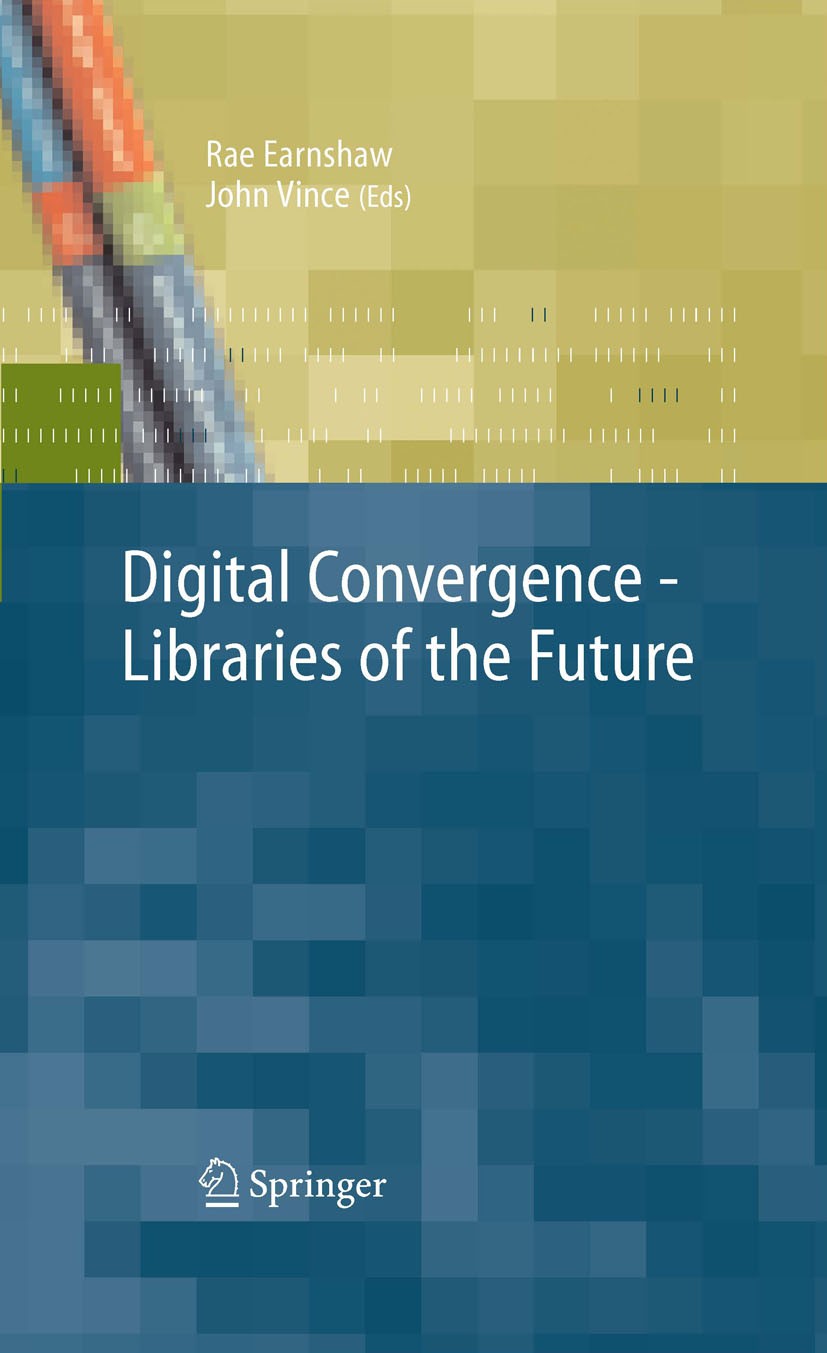| 书目名称 | Digital Convergence - Libraries of the Future | | 编辑 | Rae Earnshaw,John Vince | | 视频video | http://file.papertrans.cn/280/279192/279192.mp4 | | 概述 | Presents key aspects in the rapidly moving field of digital convergence in the areas of technology and information sciences.Chapters are written by international experts who are leaders in their field | | 图书封面 |  | | 描述 | .The convergence of IT, telecommunications, and media is bringing about a revolution in the way information is collected, stored and accessed. There are three principal reasons why this is happening – reducing cost, increasing quality, and increasing bandwidth. Moore’s Law results in ever-decreasing costs of processing, storage, and transmission. Digital information preserves content accuracy (e.g. digital television) in a way other systems do not. High bandwidth transmission from one place to another on the planet is now possible. Information is ubiquitous and globally accessible, and can be held and accessed just as easily on a global network as on a local personal computer or in a local library. Devices are increasingly intelligent and are network-ready. User interfaces are becoming more adaptable and flexible, and can be tailored to particular application domains. Digital intelligence is becoming seamless and invisible, enabling more attention to be paid to the content and the user’s interaction with it. This revolution is having effects on the development and organisation of information and artefact repositories such as libraries, museums, and exhibitions, and the way in which | | 出版日期 | Book 2008 | | 关键词 | Archiv; Digital Convergence; Digital Infomation; Digital Intelligence; Internet; Open Access; collaboratio | | 版次 | 1 | | doi | https://doi.org/10.1007/978-1-84628-903-3 | | isbn_softcover | 978-1-84996-672-6 | | isbn_ebook | 978-1-84628-903-3 | | copyright | Springer-Verlag London 2008 |
The information of publication is updating

|
|
 |Archiver|手机版|小黑屋|
派博传思国际
( 京公网安备110108008328)
GMT+8, 2026-1-15 03:08
|Archiver|手机版|小黑屋|
派博传思国际
( 京公网安备110108008328)
GMT+8, 2026-1-15 03:08


